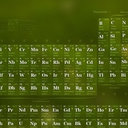Delayed Treatment with Green Tea Polyphenol EGCG Promotes Neurogenesis After Ischemic Stroke in Adult Mice.
Ключови думи
Резюме
(-)-Epigallocatechin-3‑gallate (EGCG), the predominant constituent of green tea, has been demonstrated to be neuroprotective against acute ischemic stroke. However, the long-term actions of EGCG on neurogenesis and functional recovery after ischemic stroke have not been identified. In this study, C57BL/6 mice underwent middle cerebral artery occlusion (60 min) followed by reperfusion for 28 days. Neural progenitor cells (NPCs) were isolated from ipsilateral subventricular zone (SVZ) at 14 days post-ischemia (dpi). The effects of EGCG on the proliferation and differentiation of NPCs were examined in vivo and in vitro. Behavioral assessments were made 3 days before MCAO and at 28 dpi. SVZ NPCs were stimulated with lipopolysaccharide (LPS) in vitro to mimic the inflammatory response after ischemic stroke. We found that 14 days treatment with EGCG significantly increased the proliferation of SVZ NPCs and the migration of SVZ neuroblasts, as well as functional recovery, perhaps through M2 phenotype induction in microglia. LPS stimulation promoted the neuronal differentiation in cultured NPCs from the ischemic SVZ. EGCG treatment (20 or 40 μM) further significantly increased the neuronal differentiation of LPS-stimulated SVZ NPCs. After screening for multiple signaling pathways, the AKT signaling pathway was found to be involved in EGCG-mediated proliferation and neuronal differentiation of NPCs in vitro. Taken together, our results reveal a previously uncharacterized role of EGCG in the augment of proliferation and neuronal differentiation of SVZ NPCs and subsequent spontaneous recovery after ischemic stroke. Thus, the beneficial effects of EGCG on neurogenesis and stroke recovery should be considered in developing therapeutic approaches.


